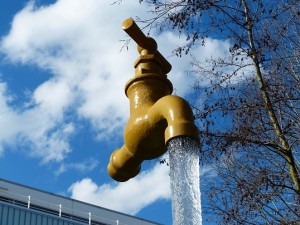 While most of us take our water supply for granted, not everyone is as lucky and many countries globally do not enjoy the luxury of a continual clean water supply. The continual supply of clean water for society can be likened to the need for blood for the body; we rely on it to keep us going in many various ways.
While most of us take our water supply for granted, not everyone is as lucky and many countries globally do not enjoy the luxury of a continual clean water supply. The continual supply of clean water for society can be likened to the need for blood for the body; we rely on it to keep us going in many various ways.
How did we get to this point though, where most cities have a good water infrastructure that delivers clean, potable water right to their homes and businesses? Early settlers in most countries used to make their camps or villages close to nearby water sources. Soon though, the rivers and lakes were insufficient for the growing population, so they started digging wells and building aqueducts. The oldest known well is in Jezreel Valley, Israel, and purportedly dates back to around 6500 BC!
While the first evidence of proper water supply comes from the Minoan civilisation Crete, the Indus Valley civilisation is famous for having the first water management system which contained hundreds of ancient wells, water pipes and toilets. The Minoans however were the first to use underground clay pipes to transport water.
Large-scale engineering projects first kicked off in Rome, when indoor plumbing and pipes supplied by breath-taking aqueducts such as the Pont du Gard aqueduct in Nimes, France first made their appearance. The Persians invented gently sloping underground channels with a series of vertical access shafts called Qanats and the Mayans pioneered water pressure and water purification. Spain became the dam building nation later on, and in the UK the first pipeline, which connected Cambridge to a spring 1km away was constructed in 1325.
Since then, technology has improved and there have been many improvements in the supply of potable drinking water in developed countries, but this too comes with problems; some of the methods of sanitising the drinking water and other chemicals that are added along the way are toxic to humans, and deteriorating infrastructure is the cause of billions of litres of water being wasted annually across the globe.
Many developing countries still have very poor access to fresh, potable drinking water and hygienic sanitation, and it seems that the will is not there to make things better for all. Basically, all governments across the world need to step up and be accountable and ensure that all citizens have access to the most vital of human rights, clean drinking water!
Living-Water is a water delivery company in London. Get bottled water cooler and mains water cooler for your home or office.





